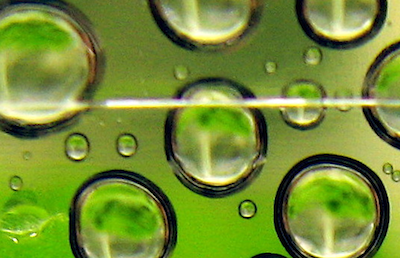BP Buys Verenium's Biofules Unit

BP Agrees to Buy Verenium's Cellulosic Biofules Unit
 July 15 (Bloomberg) -- BP Plc will acquire Verenium Corp.'s cellulosic biofuels business, expanding its operations in alternative fuels.
July 15 (Bloomberg) -- BP Plc will acquire Verenium Corp.'s cellulosic biofuels business, expanding its operations in alternative fuels.
BP Biofuels North America will pay $98.3 million for the business, which includes facilities in Jennings, Louisiana, and San Diego, the two companies said in a statement today. Shares of Verenium, which will keep its commercial enzyme business, surged the most since they started trading in February 2000.
BP, fighting the worst oil spill in U.S. history in the Gulf of Mexico, has invested about $3 billion in alternative fuels since 2005 on forecasts for global energy demand to rise 50 percent in the next two decades. Cellulosic biofuel is a liquid fuel made by extracting the sugars out of grass.
"This acquisition demonstrates BP's intent to be a leader in the cellulosic biofuels industry in the U.S.," Philip New, chief executive officer of BP Biofuels, said in a statement. "BP Biofuels should be well placed to accelerate the delivery of low cost, low carbon, sustainable biofuels, at scale."
The sale will enable the Cambridge, Massachusetts-based company to focus on its enzymes business, Verenium Chief Executive Officer Carlos Riva and Chief Operating Officer Janet Roemer said on a conference call today. Enzymes are used in the manufacture of biofuels.
"We continue to believe in the potential of cellulosic ethanol and its ability to be a significant and sustainable component of the world's alternative energy mix," Riva said. "The best and clearest way for Verenium to profit from the opportunity is to focus our resources on the enzyme component of the business."
Roemer said the company has a "deep pipeline" of possible products and a "tremendous capacity" for growth. "This transaction provides the focus and capital needed to pursue that growth," she said.
Verenium shares surged as much as 79 percent today and were up $1.61, or 65 percent, in Nasdaq trading at about 11 a.m. New York time today.
BP, Poet LLC and other companies are trying to find ways to produce ethanol from switchgrass, wood chips and agricultural waste, as an alternative to biofuels from food crops such as corn. Even so, the technology for affordable production of non- corn ethanol remains uncertain, Joe Glauber, the U.S. Department of Agriculture's chief economist said in April.
The Obama administration in February slashed the nation's 2010 cellulosic-ethanol mandate to 6.5 million gallons from the 100 million that had been required under a 2007 energy law.
By Brian Wint and Alex Morales
Bloomberg News, Washington Post
July 15, 2010
